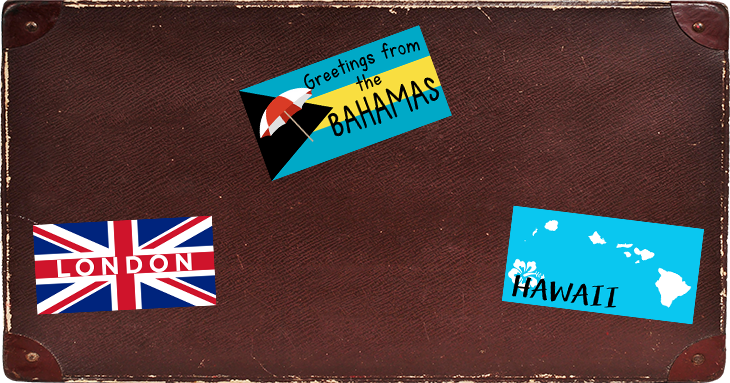
Companies Accused of Greenwashing
When companies green it, they better mean it.
From "Belgian" chocolates made in the U.S. to knockoff engagement rings, be wary of these roadblocks to love.
When dating, there are any number of things that can go wrong — beeping your horn to announce that you’re outside, chewing with your mouth open, disclosing on the first date that you’re in not one, but several, competitive fantasy sports leagues. But in addition to the things that are largely self-inflicted, deceptive advertising can also act as a roadblock to love.
With Valentine’s Day right around the corner and romance scams at an all-time high according to recent data from the FTC, as more people pursue relationships online during the pandemic, here are seven cautionary tales at the intersection of deceptive advertising and love.
Anyone who says they’ve never stopped at a Walgreens or a CVS on the ride home from work on Valentine’s Day to pick up a heart-shaped box of chocolates is a liar. Don’t trust these people. What does it matter, anyway, when the chocolate is secured, so long as it’s delivered on time and it’s a quality box?
Which brings us to Godiva. A 2019 class-action complaint against the chocolate maker alleges that Godiva falsely markets its chocolates as luxury candies made in Belgium (see representations on packaging above) when, according to the plaintiffs, they’re actually made in Reading, Pennsylvania. No offense to Reading, which has been home to a seven-story pagoda since 1908, but Belgium’s capital city of Brussels has been called the “Chocolate Capital of the World.”
“Belgian chocolates are widely known to be among the highest quality in the world,” the complaint states. Reading chocolates? Not so much.
There’s nothing wrong with being single on Valentine’s Day but if you are feeling empty on account of your singleness, snacking on your own box of chocolates may not necessarily fill the void.
A 2019 class-action complaint against Russell Stover, whose Whitman’s Sampler is pictured above, and Ghirardelli claims the companies mislead consumers by selling opaque packages of chocolate that are “predominately empty.” It’s what is known as You know when you buy a big bag of chips, and you’re all psyched for a feast, and then it turns out there are like, three chips in the bag? That bag is slack filled.. Read all about it here.
In the event that you find yourself the object of someone’s affection, the first thing you need to do is verify that your admirer is in fact a living, breathing human being — and not a bot that is more interested in getting you to open your wallet than your heart.
According to a 2014 FTC complaint against an English-based online dating service, some of the “winks” directed at users across the company’s dating sites came not from the profiles of actual people but from the fabricated profiles of computer-generated “Virtual Cupids,” aka bots. The flirtations specifically targeted non-paying users who were told to upgrade to paid memberships in order to see who winked at them. But even then it was difficult to tell that the profiles were fake, as the only indication that a particular user was in fact a Virtual Cupid came in the form of a scarcely seen symbol (a small “v” encircled by a larger “C”) in the top right corner of profiles:
Here’s the kicker: While the company, JDI Dating, agreed to pay more than $600,000 to settle the FTC’s allegations, the settlement did not spell the end of its Virtual Cupids program. It only required that JDI Dating clearly disclose that not all communications will come from actual people when users first sign up. So, when looking for love online, be sure to conduct a thorough review of a user’s profile before engaging further. After all, you don’t want to give your love away to just any-botty.
“Step aside, fate,” the eHarmony billboard said. “It’s time science had a go at love.”
But as fate would have it, eHarmony did not have the science to back up claims that its “scientifically proven matching system” was any better at setting singles on a path to marriage than other ways of meeting people. In fact, one of the dating site’s own studies, submitted in response to an The Advertising Standards Authority (ASA) is a self-regulatory body that monitors advertising in the United Kingdom. inquiry, found that the opposite was true. Overall, more married couples reported meeting through online social networks, friends, work, or at a bar or club than on eHarmony.
Plenty more of our coverage on dating sites can be found here.
If we’re talking about Valentine’s Day, we’re talking about flowers. An avalanche of flowers. According to the Society of American Florists, some 250 million roses alone are produced for the holiday.
But if you’re ordering online, don’t be surprised to find (1) a low, initial price for an arrangement more than double by the time you reach checkout and (2) the flowers delivered to your door not looking quite as nice as the bouquet pictured on the website. That’s what two TINA.org readers found to be the case with ProFlowers (1) and Avas Flowers (2, see comparison above).
Another tip: When ordering from a local florist, be sure that the seller is indeed a local florist and not someone posing as one.
Now, let’s say you’re eager to speed up the relationship and think that taking a trip abroad with your boyfriend/girlfriend of three weeks is “a good idea.” That’s your prerogative and we are only here to tell you about the potential deceptive advertising issues involved. Which include: Arriving to find that the beach at the resort doesn’t look anything like the “gorgeous oceanfront” pictured online.
That was what one TINA.org reader said he encountered upon arrival at the Grand Cayman Marriot Beach Resort. He sent us photos to prove it. Here’s what it looked like on the resort’s website with an arrow indicating the room where the reader said he was staying:
Now here’s the view from the room:
Oof. And the reader said it was like this for the duration of his six-night stay.
To prevent this from happening to you, communicate directly with the resort as part of the reservation process, and look for recent photos and reviews for another perspective.
Now, let’s take it a step further and say you beat the odds and the trip abroad with your beloved went well — really well — so well, in fact, that you’re ready to propose. The hunt for a ring begins, which brings us to Costco and its “Tiffany” diamond rings.
As you might have expected, they weren’t actually Tiffany rings. Yet that did not stop Costco from promoting them as such on store signs, according to a lawsuit that Tiffany filed against the warehouse club in 2013. Four years later, a federal judge ordered that Costco pay the storied jewelry company $19 million.
Costco had argued — it appears unsuccessfully — that store signs used Tiffany as a generic term to describe a particular type of ring setting and that most consumers understood that they weren’t actually buying a Tiffany branded engagement ring. Regardless, if you’re thinking about popping the big question, make sure you have the right merchandise.
See some of our previous Valentine’s Day posts here.
When companies green it, they better mean it.
Comparing the amount companies agree to pay to settle deceptive marketing charges with their annual revenue.
These claims may trip you up.


